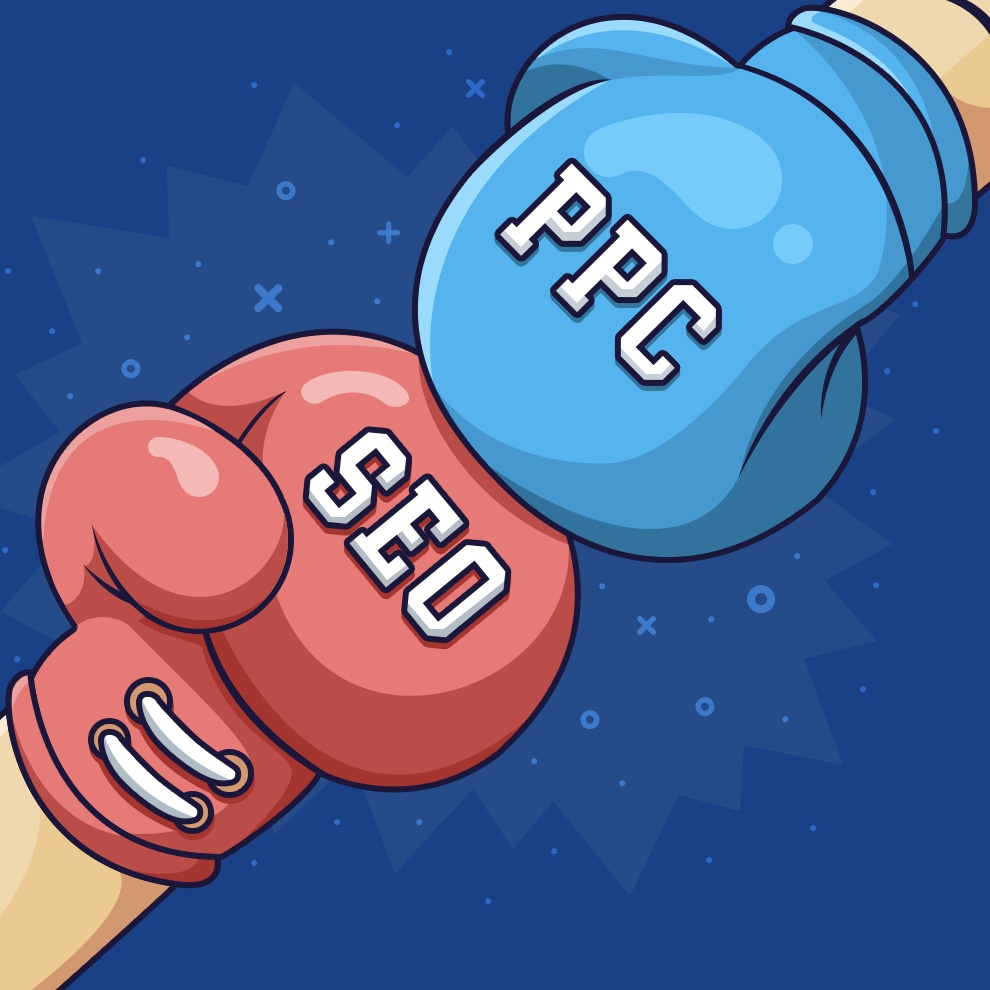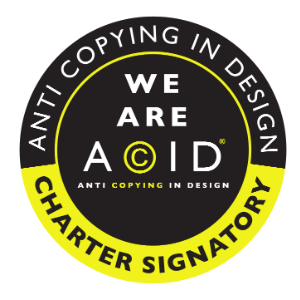Search engine optimisation (SEO) and pay-per-click advertising (PPC) are the two main ways a business can promote its products and services in search engines.
SEO is the way in which you drive organic traffic to your website through tailoring the content to relevant searches. If you’ve ever searched for something on Google or any other search engines (who hasn’t?), then you’ll know that you are more likely to click on links to websites on the first few pages you see. As such, SEO defines the process for helping your website to climb the rankings and appear higher in search results. When your web pages become more visible you are more likely to bring increased traffic to the site, attracting more customers and sales.
In comparison, PPC refers to the ads that appear above the organic content on a search engine results page. This method costs money at the outset, but will immediately place your site at the very top of the results page for potential customers to see. The two strategies are significantly different, with each one requiring its own unique approach for success. But which is best? This isn’t a question that has a concrete answer for all businesses – it’s completely dependent on what you need your marketing to deliver and when.
Deciding on how to invest your marketing budget can be a difficult task for small business owners – climb the rankings organically or pay-to-play? In our latest blog post, we have put together a side-by-side comparison of the two marketing techniques, to explain the advantages and disadvantages of each method for your current situation, objectives and marketplace. Interested? Keep reading!
SEO
Advantages
- Whilst not cheap or easy, utilising organic SEO is a cost-effective way of bringing more traffic to your website and delivering brand awareness versus other techniques. Whilst it does take investment in time and resources, and money if you outsource your SEO, there are no ‘click’ costs and your organic traffic is completely free.
- Once you have set up SEO for your website, the results last a long time. With highly effective SEO your site could maintain a top search engine ranking organically for years, compared to PPC where you may only be able to fund it for short periods.
- SEO makes your website’s ranking position fairly stable. With consistently optimised and high-quality SEO, your site should be able to maintain its spot with organic traffic that has staying power.
Disadvantages
- In comparison to PPC, SEO takes a long time to get set up to a high standard. Even after it has been set up, it can take months to see any kind of results from it. PPC, on the other hand, will get you results right away. If you have only a short window to make an impact during a seasonal period, or if you want to fast-track to success as a start-up, SEO might not be the right strategy for you.
- You cannot ‘complete’ SEO, and will have to periodically optimise your site continuously for as long as you have it. Alongside technical and on-page SEO, regular content marketing with your keywords is vital – which again is particularly time-consuming for small businesses with limited resources.
Who should choose SEO?
Realistically, if you want long-term, scalable results with website traffic that gradually increases, then SEO is a good idea. It’s wise to start with SEO as early as possible because it can take time, but the results gained from effective SEO make it worthwhile. SEO is a brilliant way to place your business right in front of your target audience when they are running a search for products and services just like yours, with organic results attracting more than ten times the number of clicks than paid results. In summary, if you’re happy to play the long game – SEO is for you!
PPC
Advantages
- Immediate results. As soon as your campaign begins you will see more traffic on your website, and if you have a good landing page then this will lead to sales, leads and conversions. With SEO, it can take a long time to see any kind of results
- PPC can be changed according to your budget and the kinds of results you want to see. You can decide how much you want to spend, and you will be able to predict quite accurately what kind of return you will get. This can also be scaled up and down with ease – ideal for sales, seasonal periods and quiet periods where you need more traffic.
- When running ads, you have the opportunity to fully tailor who sees your ads and how they look, with search ads, shopping ads, video ads, Gmail ads and more to choose from. In comparison, organic listings don’t have the same variety of options on offer.
- You don’t have to worry about organic ranking changing, because you’re bidding to be above organic rankings. There is no unpredictability with PPC – you know what you’re getting.
Disadvantages
- It can cost a lot of money to get good results with PPC; the more you pay, the better the results you will get.
- When your campaign ends, so will the traffic and interactions on your website – there are no lasting results with PPC. This means that if you no longer have the budget for PPC your website interactions will suffer massively as a result. For some, it can seem like a risk to attach a website’s growth entirely to a budget, and as soon as you turn off the tap your traffic will dry up.
- It can take a lot of time to bid on specific keywords as well as managing the amount you would like to bid on them; this means that as well as PPC being costly, it is also time-consuming.
Who should choose PPC?
If you have the budget for Google Ads or Bing Ads, PPC can be a brilliant way to get the results you want, now. For start-ups, PPC launches your business into the stratosphere and helps you to compete in the marketplace, whilst for existing businesses PPC can be used to gain both new customers and re-market to your current customer base.
As you can tell from this blog, there really isn’t an umbrella answer to the SEO vs PPC battle – it’s completely dependent on the results you are looking for. In an ideal world, combining these two powerhouse marketing strategies is the ultimate winner, but if you’re struggling with time, resources or funds, we hope our guide gives you an interesting insight into which method might work the best for your business. If you would like to have a free consultation to discuss your marketing options, get in touch with the Kreativity team today!






